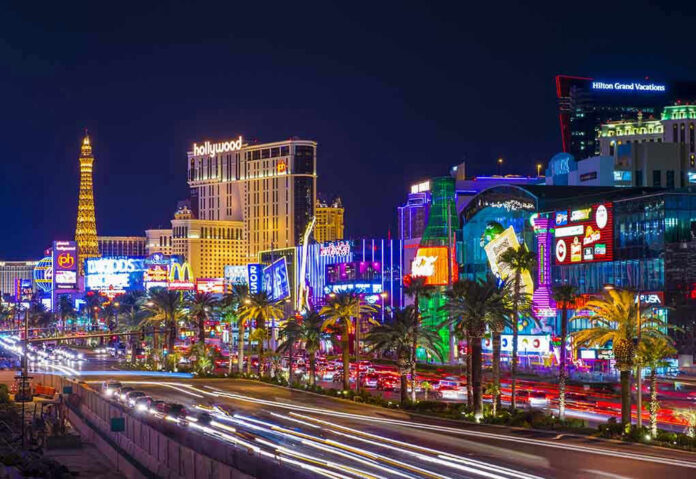Ongoing investigations reveal that America’s largest casinos may have quietly enabled Chinese organized crime to funnel illicit billions through Las Vegas, threatening the integrity of our financial system and testing the resolve of U.S. law enforcement.
Story Snapshot
- Major U.S. casino operators allegedly facilitated a secret pipeline for Chinese gamblers and organized crime, moving cartel cash through Macau and Las Vegas.
- Junket operators—many linked to Chinese triads—used casinos to launder money, enable illegal gambling, and conduct cross-border capital flight.
- Despite repeated investigations and regulatory warnings, casino operators resist scrutiny, with only limited accountability so far.
- Experts warn of deep-rooted organized crime influence and urgent need for tougher oversight to defend American economic and legal interests.
Organized Crime’s Hidden Influence in American Casinos
Allegations have mounted for decades that leading U.S. casino giants, particularly Las Vegas Sands Corporation, have become a conduit for illicit funds from Chinese triads and international cartels. These operations primarily leveraged the junket model—using intermediaries to bring high-rolling Chinese gamblers into Macau and Las Vegas while bypassing standard financial safeguards. Investigators point to the 1990s and early 2000s as the era when triad societies solidified their control over VIP junket operations in Macau, embedding organized crime deep into the gambling industry. This criminal pipeline threatens to undermine U.S. financial security, enabling money laundering and capital flight on a global scale.
How Chinese gamblers created a secret pipeline for illicit cash through Las Vegas’ biggest casino via @CNN https://t.co/2DJTFGVlyV
— CrowdedHead (@CrowdedHead) November 19, 2025
After Macau’s casino monopoly ended in 2002, American casino interests expanded rapidly, importing the junket system and its vulnerabilities. By the 2010s, U.S. regulators were probing Las Vegas Sands and other operators for suspected money laundering and ties to organized crime. In 2012, ABC News reported that Las Vegas Sands faced criminal investigations by both the Department of Justice and the Securities and Exchange Commission. Despite repeated denials from casino executives, media and legal scrutiny persisted as triad-linked junket operators extended their reach into Las Vegas, exploiting regulatory loopholes and lax oversight.
Regulatory Challenges and Casino Resistance
Regulators and federal authorities have struggled to keep pace with the sophisticated schemes employed by junket operators and their criminal backers. The U.S. Treasury’s Financial Crimes Enforcement Network repeatedly warned casinos to step up monitoring of junket activity and to report suspicious transactions. However, the casino industry’s resistance to stricter oversight and the complex international nature of these operations have stymied meaningful enforcement. With only one major settlement—Wynn Las Vegas forfeiting $130 million in 2020 for colluding with unlicensed money transmitters—the broader network remains largely intact, raising concerns among law enforcement and policy experts about ongoing risks to American sovereignty and law.
Experts such as Steve Vickers, a former Royal Hong Kong Police commander, have stated that nearly all junkets serving Chinese gamblers have connections to organized crime. Academic research from the University of Nevada, Las Vegas, underscores the challenges regulators face in cutting through the layers of intermediaries and offshore finance. Despite mounting evidence and repeated warnings, casino operators continue to downplay their involvement, citing the economic importance of high-roller junkets while denying any wrongdoing. This stance directly challenges the principles of transparency and accountability that safeguard the American financial system.
Broader Impact: Threats to American Values and Legal Order
The repercussions of these criminal pipelines extend far beyond the casino floor. In the short term, increased regulatory scrutiny brings reputational damage and the threat of fines to operators. Long term, however, unchecked money laundering and organized crime threaten to erode public trust, destabilize markets, and embolden foreign criminal enterprises within U.S. borders. The entanglement of American business interests with transnational crime syndicates exposes weaknesses in our enforcement system and invites further exploitation. For conservatives, this scandal serves as a stark warning: when globalist greed and regulatory complacency intersect, the integrity of our institutions—and the rule of law itself—hangs in the balance.
While casino executives lobby to protect their profits, and federal agencies scramble to close loopholes, the American people bear the cost. Every dollar laundered through our casinos represents an affront to our laws, our economic security, and our national sovereignty. The ongoing investigations are a critical test of whether U.S. leaders will finally put American interests first, defend our institutions, and restore true accountability in an industry long plagued by corruption and foreign influence.
Sources:
ABC News. “Watchdog: Mob Ties at Chinese Casinos Owned by US Firms?”
Jamestown Foundation. “City of Vice: Macau, Gambling, and Organized Crime in China.”
UNLV Research. “Sovereignty and Gaming in Macau.”











